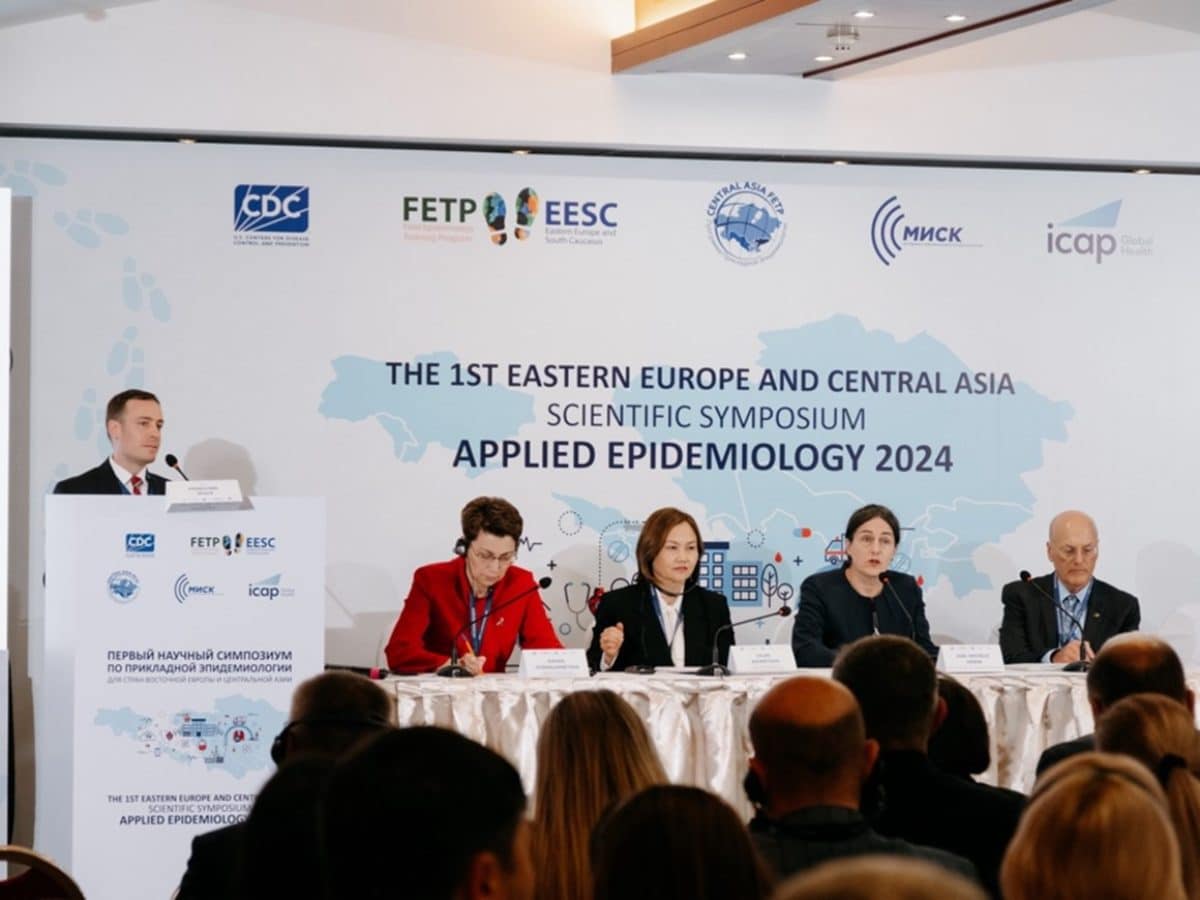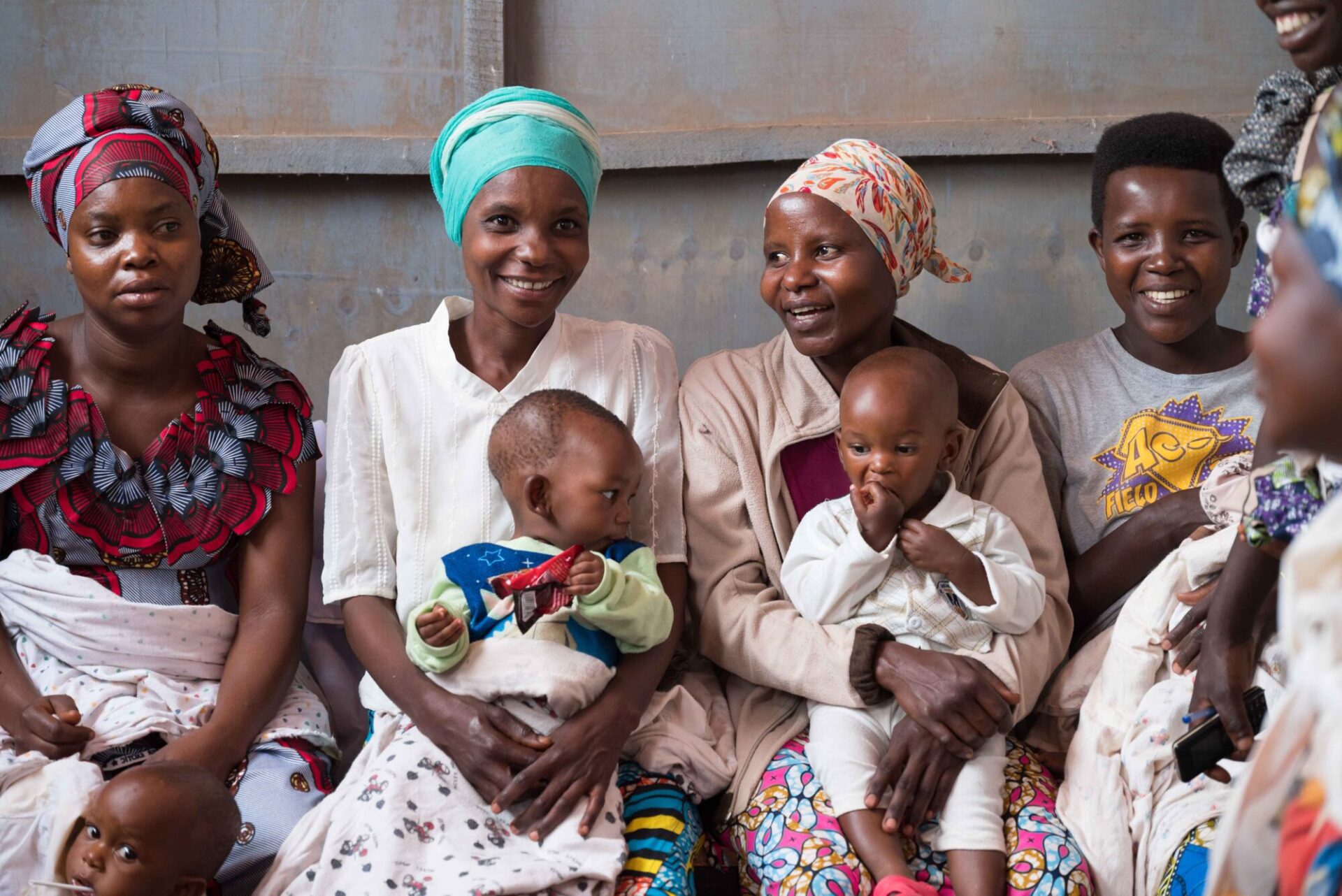ICAP in Kazakhstan organized the first regional Eastern European and Central Asian (EECA) scientific symposium for applied epidemiology – an effort aimed at strengthening cross-border exchange of information among epidemiologists, veterinarians, and other health specialists.
In collaboration with the Centers for Disease Control and Prevention (CDC), the World Health Organization (WHO), the Ministry of Health, and the Youth Information Service of Kazakhstan, the EECA Scientific Symposium on Applied Epidemiology was held from September 10-12, 2024, in Almaty, Kazakhstan. The conference included 140 participants from eight EECA countries, including from Armenia, Azerbaijan, Kazakhstan, Kyrgyzstan, Moldova, Tajikistan, Ukraine, and Uzbekistan, who joined in-person and online.
The three-day symposium was divided into plenary sessions, abstract-driven oral presentation sessions, and poster sessions delivered by current Field Epidemiology Training Program (FETP) trainees and graduates who presented their work and shared their experiences with public health leaders from across the region. The FETP, which ICAP has supported in collaboration with the CDC since 2022, is a training program that prepares the public health workforce across the Eastern Europe and Southern Caucasus to investigate and respond to major disease outbreaks more effectively.
The symposium further underlined how crucial the FETP training program is – which pairs expert mentors from government and public health sectors with FETP residents – for ensuring the best public health practices are applied in real-world situations, and for enhancing local, district, and national capacities and collaboration to address public health concerns.

Symposium participants listen in on an oral presentation.
Over 120 abstracts were submitted for the symposium, with 56 selected for oral or poster presentations on the areas of outbreak investigations, vaccine-preventable infections, one health, blood-borne infections, infection prevention and control, and respiratory diseases.

Symposium participants gather for discussion with ICAP in Eurasia regional director Anna Deryabina (right).
“One of the most important aspects of the symposium was the opportunity for networking and information exchange between countries,” said Anna Deryabina, MD, DrPH, MScIH, regional director of ICAP in Eurasia, “as there is no other platform in the region where representatives from eight countries can gather for professional discussions.”
“The FETP science symposium provides a crucial platform for discussing common public health challenges and identifying priorities for future collaboration and problem-solving,” added Manar Smagul, deputy chairperson of the board, National Center for Public Health, Kazakhstan.
Symposium sessions were facilitated by subject matter experts from CDC, ICAP, and WHO. In addition to these presentations, participants engaged in targeted professional development activities. Topics ranged from the role of genomic sequencing in field epidemiology to antimicrobial resistant organisms to public health mis- and dis-information, among others.
“The scientific symposium has been a tremendous accomplishment,” said Dimitri Prybylski, regional associate director of Eastern Europe, Central Asia and South Asia for CDC. “We brought together key experts from Eastern Europe and Central Asia to exchange ideas and build regional networks for the future.”

Symposium participants
Following the symposium, a survey among all participants indicated that the event was a significant step forward in fostering collaboration among epidemiologists and public health professionals in the region, setting set the stage for future symposia.
About ICAP
A major global health organization that has been improving public health in countries around the world for two decades, ICAP works to transform the health of populations through innovation, science, and global collaboration. Based at Columbia Mailman School of Public Health, ICAP has projects in more than 40 countries, working side-by-side with ministries of health and local governmental, non-governmental, academic, and community partners to confront some of the world’s greatest health challenges. Through evidence-informed programs, meaningful research, tailored technical assistance, effective training and education programs, and rigorous surveillance to measure and evaluate the impact of public health interventions, ICAP aims to realize a global vision of healthy people, empowered communities, and thriving societies. Online at icap.columbia.edu







